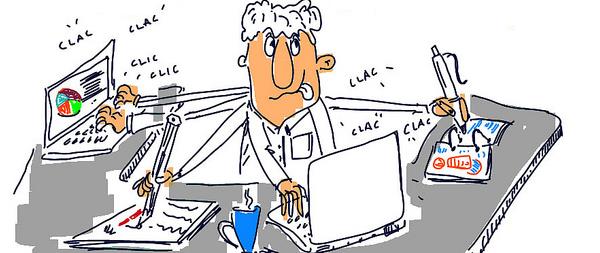For Part 1 of the Essential Selling Skills Bootcamp, click here.
–
You have always heard the phrase “Time is money.” and when you are a paid professional, then your time is money.
Effective time management can have a significant impact on your productivity and performance. Not only will it make you more productive, but it will also help you produce better quality work and free more time so you can develop yourself.
Become highly productive by managing your attention and applying time management skills to your daily routine.
Subjects Covered:
- WHY DO YOU NEED ATTENTION MANAGEMENT?
- HOW DOES OUR ATTENTION WORK?
- HOW TO CONTROL DISTRACTIONS.
- PRACTICING TIME MANAGEMENT SKILLS AND INCREASING PRODUCTIVITY
“lost yesterday, somewhere between sunrise and sunset, two golden hours, each set with sixty diamond minutes. No reward offered, for they are gone forever.”
1. WHY DO YOU NEED ATTENTION MANAGEMENT?
“Our economy’s most precious and dwindling commodity is the human attention”-T.JARRAR
In the proliferation of the internet and the explosion of social media, we are bombarded with messages, information, and news 24/7… all of which compete for your attention.
As you engage in a daily race to complete the tasks on your to-do list, allocating a specific time to a task is no assurance that the job will receive your full attention, and without attention, the time that you have allocated becomes irrelevant.
Therefore, the primary productivity skill you need in this century and beyond is the ability to guard your attention in a world full of distractions.
2. HOW DOES OUR ATTENTION WORK?
- Our Attention is limited. Many studies have verified that our attention is limited in its capacity and duration. That is substantial proof that multitasking infrequently works well.
- Our Attention is Selective. Therefore, we have to be picky about the things we pay attention to. “We must be selective in our attention by focusing on some events to the detriment of others. This is because attention is a resource that needs to be distributed to those events that are important” rationalized by the author Russell Revlin in his book Cognition: Theory and Practice.
- Our Attention is Vulnerable to Distractions. Distractors in our life aren’t always easy to recognize since many distractions are minute, with effects that may go unnoticed. For example, the many alerts and notifications that we receive on the multitude of devices that clutter our life but when all of these distractions are added up,over time it has a significant impact on our productivity.
3. HOW TO CONTROL DISTRACTIONS.
The Key to Time Management Is Managing Your Attention.
“Attention management is the practice of controlling distractions, being present in the moment, finding flow, and maximizing focus. It’s about being intentional instead of reactive. It is the ability to recognize when your attention is being stolen.”- Maura Thomas
How to Control Distraction and Manage your Attention
Understand Why You Are Getting Distracted
If you are easily distracted, then you need to understand the reason behind that. It is possible that you might be overwhelmed by the task or the work that you are doing.
Manage Your Screen Time.
Cell phones and social media are one of the primary sources of distraction. If you want to focus and manage your attention, unplug so you can focus on the task at hand.
Smartphones- Every day we receive mounting evidence on how addictive and distracting, Smartphones are and how they are draining our attention.
- Turn your phone off or switch it to airplane mode when working.
- Audit your apps’ notifications settings. By default, most phones will send you a visual and audible notification whenever there’s an activity on your feed or account.
- Remove unnecessary and distracting apps from your home screen. The problem with so many apps is that you will start with one app and then unconsciously move to the others.
- Make Your Smartphone screen much less suggestive to look at by Switching to Grayscale.
The Internet – When used in moderation and for constructive purposes, the internet is a fantastic advancement in technology and a great educational tool. However, when it is excessively used, it becomes addictive and disruptive.
E-Mails – The temptation of instantly replying to e-mails is a major distractor and can put you on a trajectory to multitasking and losing focus.
- Dedicate a specific time in the day to read and respond to emails.
- Resist responding just because you were copied on an E-mail.
- To reduce the number of emails you receive start by reducing the number of e-mails your sending in the first place.
- Organize your inbox with flags, folders and categories.
Manage Your Work Time.
Work-Chat – Chatty co-workers- have a determinantal effect on your attention and your productivity.
When it comes chatty co-workers, the solution is simple, walk away. Not only will you save time but you will not be considered an accomplice to the crime of wasting time.
- Set time limits to a conversation by politely apologizing that you have limited time to chat about the topic.
- Ask about the relevance when the conversation seems to be shifting from one topic to the other.
- Shorten the Conversation by suggesting a conclusion.
Internal Meetings- Meetings are not only costly to the organization but are wasting our precious time. These meetings have increased in both their length and frequency over the past 50 years. According to research on the matter, executives are spending around 23 hours a week in them.
- Meetings should be structured with a clear agenda and set of deliverables.
- Meetings should not be held just to share information.
- Agree ahead of time how long a meeting should last only on the basis of what you need to accomplish.
- Start every meeting on time and finish on time.
- Meetings are not brainstorming sessions, expect people to come prepared with specific solutions or thoughts.
- Minutes of the Meetings should be a tool to establish what, who, and by when.
4. PRACTICING TIME MANAGEMENT SKILLS AND INCREASING PRODUCTIVITY
Time management is one of the critical self-control aspects that salespeople must master. As Sales Professionals, we are always juggling numerous sales tasks that are competing for our attention and time. So how do we manage our time to maximize our selling time?
What Is Time Management?
- Time Management is not an isolated skill but a combination of skills.
- Time management signifies managing our critical activities within the fixed time frame to ensure optimal attention in order to maximize our productivity
- Time management is NOT about achieving more. It is about managing ourselves in relation to time.
Goals Setting The (SMART) Way:
“If you want to be happy, set a goal that commands your thoughts, liberates your energy and inspires your hopes.” —Andrew Carnegie
How you optimize your time should be driven by effective goal-setting. The most fundamental of time management skills is the ability to utilize your time in a method which serves your goals.
- Specific: Think about where it should happen, when it should happen and what you want to accomplish.
- Measurable: You should know when you’re making progress and when you’re heading in the right direction.
- Attainable: Your goal has to be attainable and you have to believe that you can achieve it.
- Realistic: If you set an unrealistic goal, it will discourage you from taking the first step.
- Timely: Setting a deadline will dramatically enhance your focus and motivation.
Prioritization:
“It is not a daily increase, but a daily decrease. Hack away at the inessentials.”
― Bruce Lee
Prioritizing is not about getting more work done. Prioritization is about which task should be prioritized given the limited time available in a day.
- Be realistic about the most important tasks that needs to be achieved.
- Start by Prioritizing Your Sales Pipeline.
- Analyze the health of your pipeline and set your priorities accordingly.
- Ask yourself: What can I get done today that’ll have the most significant impact on my pipeline? What can I get done today that’ll have the most significant impact on my sales quotas?
Tackle Procrastination:
“Only put off until tomorrow what you are willing to die having left undone”
― Pablo Picasso
Procrastination means delaying a task (or even several tasks) that should be a priority.
The ability to overcome procrastination and tackle the important tasks is a key Time Management skill that as successful Sales professional you must learn and apply to your habits.
The first step to overcoming procrastination is to recognize that you’re doing it, then, identify the reasons behind your behavior and use appropriate Time Management skills to tackle it.
- Have a broader perspective, look at everyday tasks through the lens of a bigger picture. For example, cold calling will generate leads that would turn into prospective buyers which will be converted into sales. The bigger picture meeting your quota and making money.
- Stop thinking about it and JUST DO IT!
Stop Multitasking:
Multitasking is a myth. Science has clearly proven that humans cannot easily focus on two things at once. In essence, multitasking is switching  back and forth between task. Every time you switch from one task to the other, your attention shifts and your focus is diluted, more so given the diverse nature of sales where each task requires a different mindset and engages a different set of skills. For example, presenting is very different from prospecting.
back and forth between task. Every time you switch from one task to the other, your attention shifts and your focus is diluted, more so given the diverse nature of sales where each task requires a different mindset and engages a different set of skills. For example, presenting is very different from prospecting.
Create momentum:
Gaining momentum is very important in optimizing your productivity. Momentum is energy, and like any form of energy, it dissolves and must be fed by regular exertion. When you are at a task and gaining grounds, don’t stop and keep it going. Capitalize on the momentum that you have created.
“Regaining momentum takes three times as much energy as sustaining momentum,” according to US business author, Dan Pink.
Chunk your time:
Time Chunking is a strategy where you define time periods to work on specific tasks throughout the day. Time chunks can be as short or as long as you want, but it should be focused on a single ideally sized task.
- Record Ideas
To begin chunking, you must get the ideas or tasks onto paper or a digital device. Document the ideas, and actions you need to handle and the desired outcome for each. Jot down everything you have to accomplish in a week. Consider this a dumping ground for your thoughts
- Connect the dots
Once the wish list is jotted down, look for commonalities among the to-do list and chunk them together. Chunking your time provides you with clarity and enhances your productivity in any given day.
IN CONCLUSION
Time management techniques and skills are more crucial than ever given the 21st century hectic pace, but to enhance the effectiveness of time management skills you need to factor in attention management. You should protect it by understanding the level of damage that all distractions that have been mentioned above have on your attention and your productivity. So, before you utilize the above useful time management skills, you need to identify and remove the clutter of distractions from your personal and professional life.
Words of Wisdom
- Harvey Mackay: Time is free, but it’s priceless. You can’t own it, but you can use it. You can’t keep it, but you can spend it. Once you’ve lost it, you can never get it back.
- Napoleon Bonaparte: Take time to deliberate, but when the time for action arrives, stop thinking and go.
- Benjamin Franklin: You may delay, but time will not.
For Part 1 of the Essential Selling Skills Bootcamp, click here.





